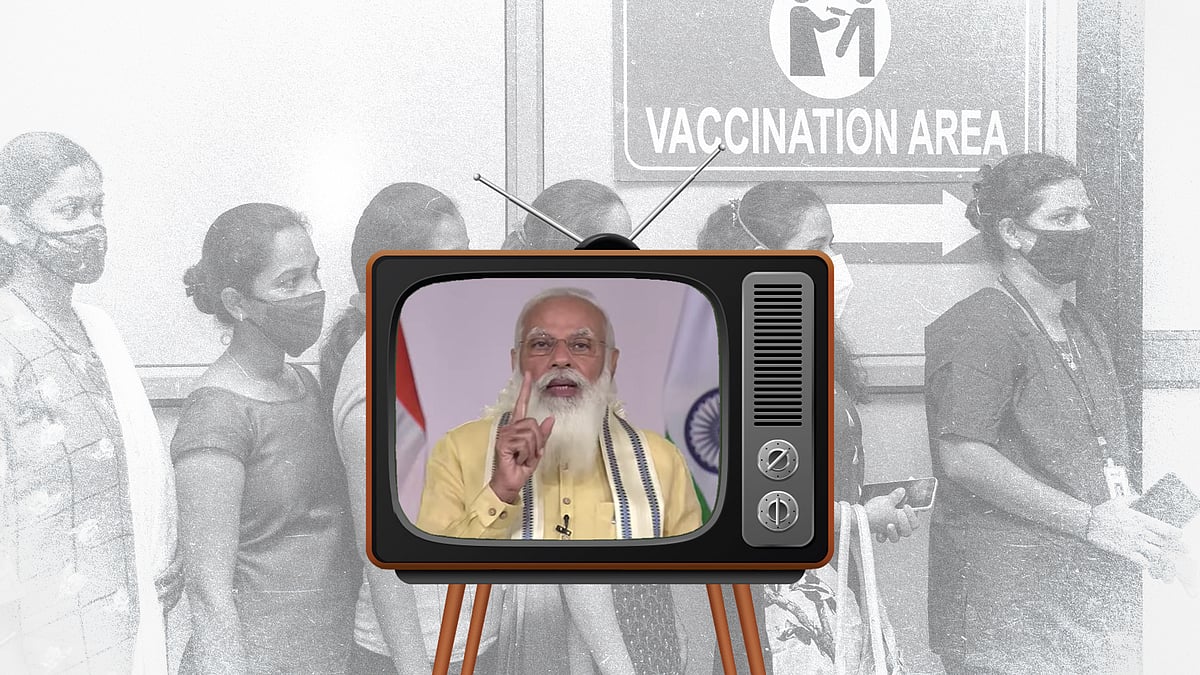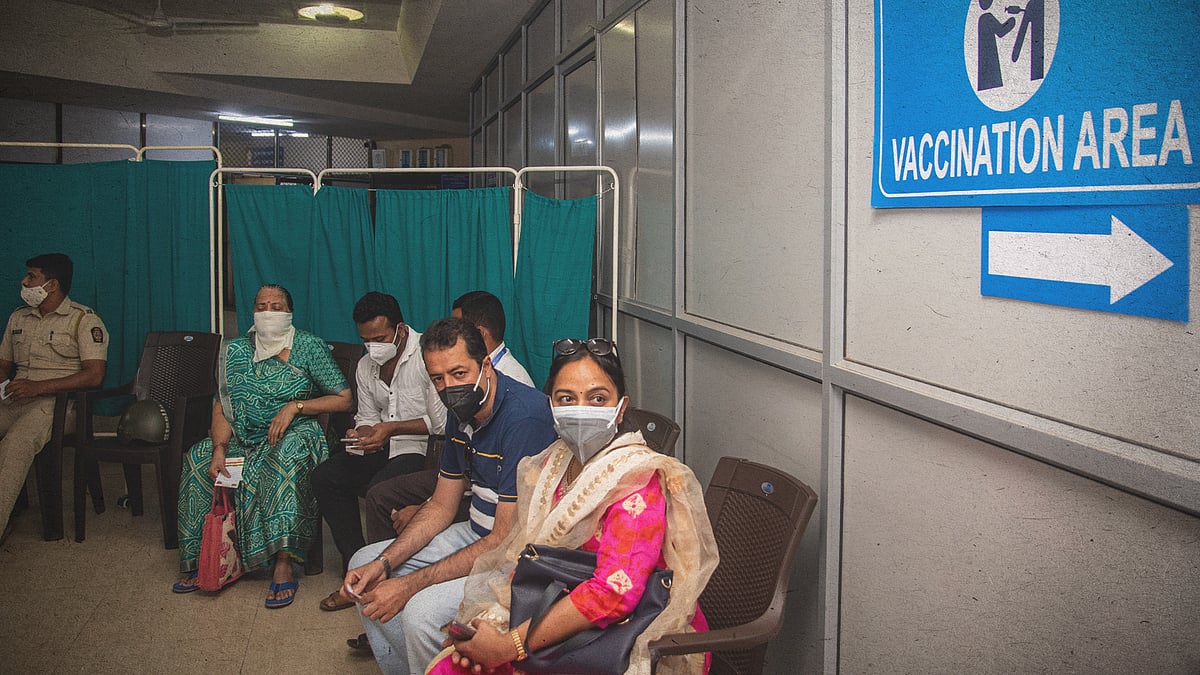In charts: How India’s Covid vaccination drive is going
Can Modi’s vaccine policy reversal rescue the teetering inoculation drive? It’s not so simple.
In a televised address on June 7, Narendra Modi reversed his government’s controversial vaccine policy. Instead of leaving states and union territories to buy vaccines for people in the 18-44 age group, as the April 19 policy mandated, the prime minister announced that the central government will undertake all public procurement and every citizen aged 18 and above will be eligible for a free jab.
Though the policy reversal has been widely welcomed, it’s unlikely to solve many of the teething problems that have derailed the vaccination drive. Not least the shortage of vaccine doses, which drove down the average inoculations from around 29 lakh in April to 19 lakh doses in May.
To get a sense of the challenge India faces to vaccinate its massive population against Covid, here’s a lowdown on the inoculation drive.
How many vaccines does India produce?
To fully vaccinate its entire population, India needs at least 242 crore vaccine doses. As of June 8, it has administered just about 23.5 crore doses. To meet its target of vaccinating 108 crore people by the end of the year, the government will need to procure 192.5 crore more doses in the next six months or so.
That’s a tall ask.
The bulk of the country’s vaccine stock currently comes from just two manufactures – the Serum Institute of India, which is supplying Covishield and Bharat Biotech, which makes Covaxin.
There’s no precise data, but the Serum Institute had supplied nearly 19.7 crore vaccine doses as of May 28 and Bharat Biotech nearly 2.76 crore doses to central and state governments in total. The former claims to have a capacity to make 6.5 crore doses a month currently and the latter an estimated 2 crore doses.
Bharat Biotech chief Krishna Ella claimed on April 20 that his company “will produce three crore doses of Covaxin in May as opposed to 2 crore in April”. However, for a company which claims to have been making 1-2 crore doses a month since January this year, the numbers don’t seem to add up.
A government press release on May 28 asserted that Bharat Biotech’s claim of having produced six crore doses of Covaxin in all was “an error of comprehension”.
The Serum Institute is legally bound to provide 110 crore doses for the Covax initiative, under which vaccines are being supplied to poor countries. This means not all vaccine doses produced by the company will be used in India. The SII has manufactured only 2.98 crore of the 20 crore doses it initially committed to Covax thus far. Of these, 1.98 crore doses have been exported.
To compound the problem, the Modi government moved late to place orders for vaccines. For a mammoth vaccination drive that was to start on January 16, the first formal orders for Covishield and Covaxin were placed only on January 11, 2021. And the next order with the SII was placed on February 3.
It’s not known precisely how many orders the government has placed so far and for how many doses. VK Paul, chairman of the National Expert Group on Vaccine Administration for Covid, provided the following details at a press briefing on May 13:

In an interview, SII chief Adar Poonawalla claimed that since the government wasn’t proactive in placing orders, his company didn’t have enough time to increase his production capacity.
To address the shortage, the Modi government announced on April 13 that it would approve for use in India vaccines cleared for emergency use by WHO. Many states and union territories such as Delhi, Maharashtra, Uttar Pradesh, and Telangana then floated global vaccine tenders, but manufacturers such as Pfizer said they would not deal with the states but only with the union government.
So far, India has been able to import only the Sputnik V vaccine, made in Russia, getting three batches of 1.5 lakh, 60,000 and 30 lakh doses.
How many vaccines have been administered?
The union health ministry claims to have provided nearly 24.65 crore vaccine doses to states as of June 8, of which 23.48 crore doses have been administered. Maharashtra, Uttar Pradesh, Gujarat have administered the most doses; Sikkim, Nagaland, Mizoram, Arunachal Pradesh the least doses.


Tripura, Ladakh, Lakshadweep, Chandigarh and Delhi among other states have fully vaccinated over 5 percent of their respective populations. On the other hand, states such as Bihar, Uttar Pradesh, Jharkhand, Manipur, and Madhya Pradesh have fully vaccinated less than 2.5 percent of their populations.


How many vaccine doses are being wasted?
The Modi government has frequently complained that one of the key reasons for the shortage of vaccines is that states are wasting a lot of the doses.
According to information obtained under the RTI Act in April, the health ministry claimed that states had wasted nearly 44 lakh of the 10 crore doses provided till then. Tamil Nadu and Haryana had wasted one out of every 10 doses, according to the ministry, while Bengal, Manipur and Telangana had wasted some eight percent of their entire supply until April 11.
On May 25, the health ministry claimed that over 37 percent of all vaccine doses were going to waste in Jharkhand and around 30 percent in Chhattisgarh. Moreover, Tamil Nadu at 15.5 percent, Jammu and Kashmir at 10.8 percent and Madhya Pradesh at 10.7 percent were wasting more vaccine doses than before.
The state governments have strongly disputed these numbers.
How much taxpayer money have manufacturers received?
In an affidavit to the Supreme Court in May, the Modi government claimed it gave no financial assistance for the research and development of either Covishield or Covaxin. It only helped them carry out trials.
In April, well after the second wave of the pandemic had begun devastating the country, the government gave Rs 1,732.5 crore in pre-booking advance to the SII for an order o f11 crore doses and Rs 787.5 crore to Bharat Biotech for five crore doses. It also gave supplier’s credit amounting to Rs 3,000 crore to the SII and Rs 1,500 crore to Bharat biotech on April 19.
 Are the reasons Modi gave for his vaccine policy reversal valid?
Are the reasons Modi gave for his vaccine policy reversal valid? Number game: How India is using statistics to hide the truth about Covid
Number game: How India is using statistics to hide the truth about Covid